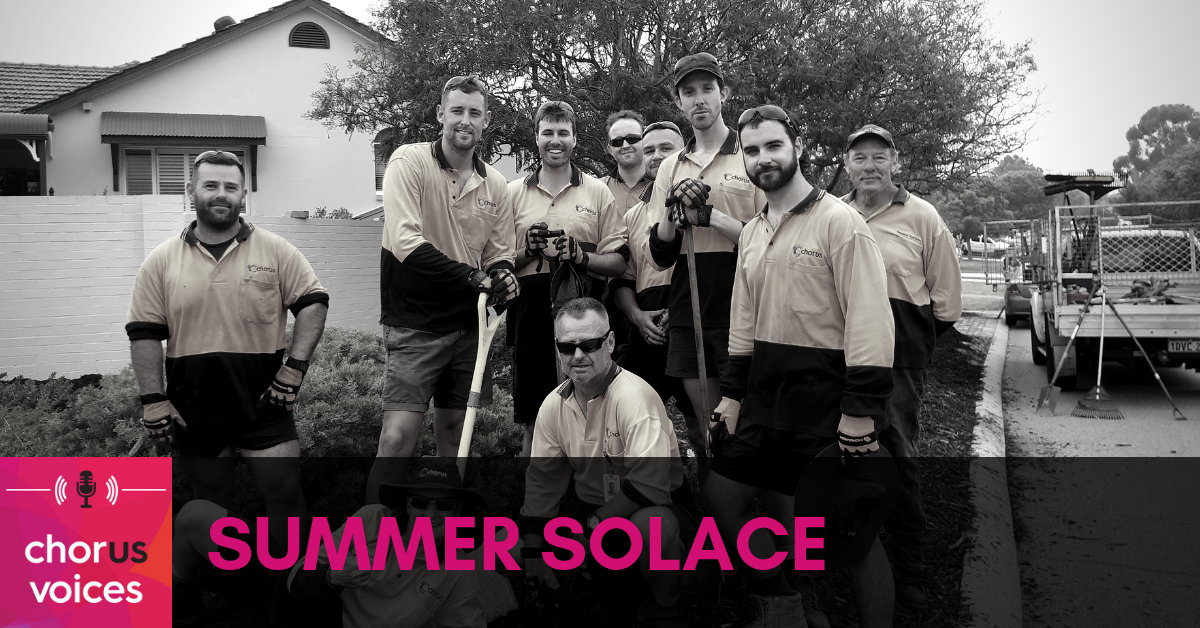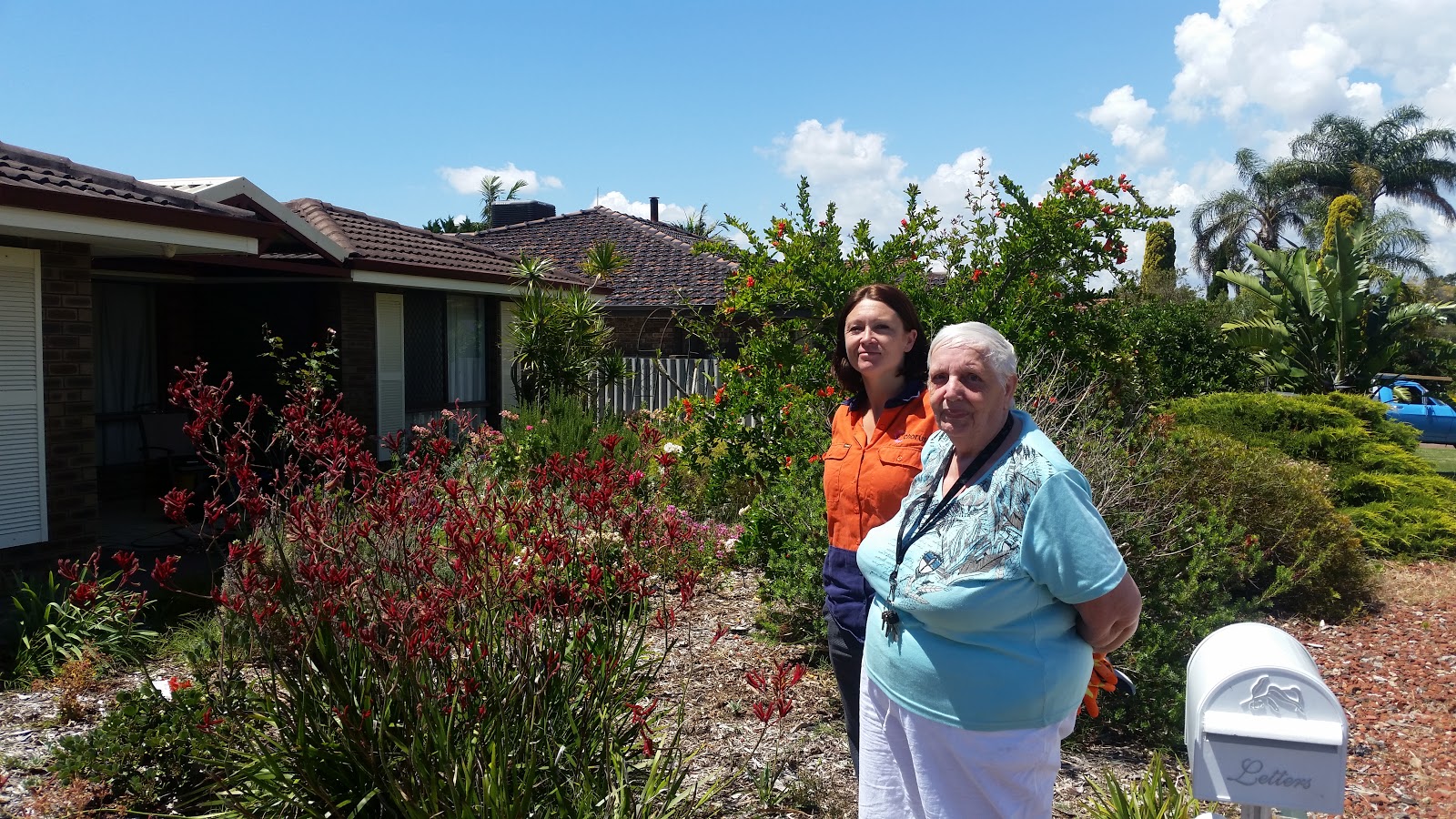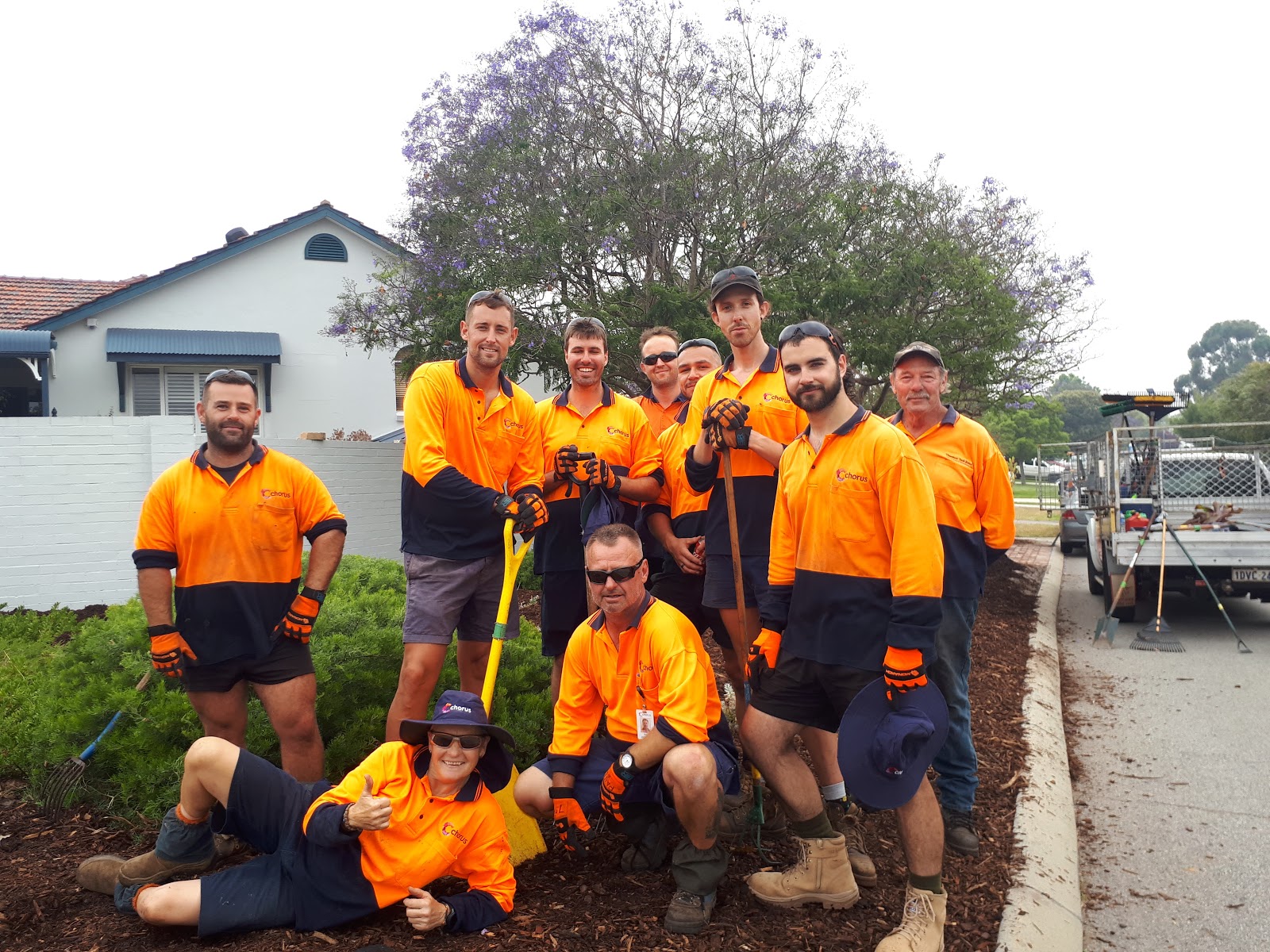
Join Louise Forster and Judith Hatton on Chorus Voices as they explore how Water Wise gardening benefits individuals, communities and the environment in Western Australia. Find out how Water Wise works and how to start your very own beautiful Water Wise garden.
Listen Now
Or listen on: Apple Podcast | Spotify | YouTube
Water Wise at Chorus [0:00]
Disclaimer: Chorus no longer provides a specialised Water Wise gardening service. Read below and listen to the podcast for some great advice on how to start and maintain your own Water Wise garden.
Louise and Judith talk about Water Wise gardening in Perth, WA.
“We do an amazing job here at Chorus with Water Wise gardening. We’ve been doing it for quite a few years now. It’s all about making gardens Water Wise so customers can have a beautiful garden that’s easy to maintain and doesn’t use a lot of water,” says Judith.
“I’ve seen the before and after – I’ve seen a high maintenance lawn or cottage garden get turned into a Water Wise garden that’s beautiful and easy to look after.”
Next, Dylan Hatton catches up with Chorus Water Wise Champ Rachel Levell, who helps manage Water Wise gardening at Chorus, to get an idea of what it takes to create a Water Wise garden.
Tips from Water Wise Gardener Rachel Levell [2:00]
“Water Wise gardening is the future. It’s a way to enjoy your garden with a reduced water usage in harsh, arid climates like we have in Perth,” Rachel says.
Dylan asks, If I want a Water Wise garden, where do I start?
“To start a Water Wise garden, you need to look at plant choices, look at the area you’re living in, and visit some of your local parks, the internet, or come see us at Chorus [to get inspiration and education on what your Water Wise garden could look like],” says Rachel
Dylan asks Rachel about the key ingredients in a Water Wise garden.
“Well, you have to start off by looking at the soil. Perth soil is essentially sand, so it’s very poor quality. We add things like soil improver and wetting agents to improve the soil and give plants the best start to life,” says Rachel.
“Once the soil is improved, you have to choose Water Wise plants.”
“Finally, mulching is essential to protect the garden and add [nutrients] to the soil.”
Dylan asks Rachel: what are the benefits of having a Water Wise garden over anything else?
“Especially in the summer months, everybody’s going to feel the benefits of having a Water Wise garden. It’s sustainable, and your water bills will go down – as most household water is used in the garden,” Rachel says.
“It’s also environmentally friendly, and brings wildlife back into the suburban setting, which is a beautiful thing for us.”
What makes a Water Wise plant Water Wise?
“A Water Wise plant is one that will do well with just one watering per week during a harsh summer – and can get by with rainfall alone during winter months. Some of my favourites are the big, showy grevillea flowers, but there is such a diverse range out there now!” Rachel comments.
Dylan asks Rachel: As a Chorus gardener, how do you feel when you’ve turned a high-water garden into a Water Wise one?
“We feel great! We’re not only reducing customers’ water bills, we’re doing something good for the environment, and we’re seeing the change enjoyed by the customer so it’s a great feeling all around,” Rachel says.
Now that we’re clear on what a garden should look like and what the benefits are, it’s time to visit one of Rachel’s garden projects!
Visiting a Garden with Kathy and Rachel [6:00]

Caption: Rachel and customer Kathy enjoying the Chorus Water Wise garden at Kathy’s house.
Standing in a gorgeous Water Wise garden, Matthew Clark speaks with Rachel and Chorus customer Kathy for whom the garden was created.
Kathy, can you tell me about your garden and what we’re looking at?
“We’re looking at my Water Wise garden! It hasn’t been watered in over two weeks, and it still looks beautiful. It brings the birds, and the birds have a bath every time they visit. It’s just a pleasure to be in and around – it’s my life,” Kathy says.
What sort of flowers are these?
“Roses, kangaroo paw, grevillea – it’s a mixture but they’re all native.” Kathy says.
“To be able to go away for a few weeks, and come back and have everything looking like this – it’s just wonderful. It keeps your water bill really low, and to me it’s very pleasing to the eye,” Kathy says.
Creating a Water Wise Garden for an Incredible Chorus Volunteer [9:30]
Judith goes to visit Andy Creighan, a very special Chorus volunteer.
“Andy has been a volunteer with us for some time. He lives with early onset dementia and didn’t like gardening. When I spoke to him, I said ‘I think you’re a gardener,’ and he said ‘ I don’t really like gardening.’ But he decided to come volunteer with us, and we took him out gardening – and it’s changed his life. He’s become a lot more positive since gardening with us, and we have a really special relationship with him. Everybody loves Andy. Our very last job of the year was to go to Andy’s house and give our time back. We did it outside work hours, as a volunteer job for our volunteer, Andy to give him a Water Wise makeover,” Judith says.
Judith has a chat with Andy and also Janice Halliwell and Alex O’Shea, who are working on a Water Wise garden for Andy.
“The crew and I from the Chorus gardening team from the Carlisle squad are here helping Andy and his wife. We’ve put some new plants through, and we’re mulching it at the moment. As you can see, the boys are hard at work spreading the mulch, and we’re just all getting involved in helping someone that helps us,” Janice says.

Caption: The Chorus Carlisle team (staff and volunteers) working in Andy’s garden
Judith asks Alex what the team has planned for Andy’s garden.
“We’re just here to help Andy out. We’re doing some mulching, doing a bit of Water Wise gardening and putting some natives in to make the front super low maintenance for Andy,” Alex says.
Alex also talks about the special relationship the team has with Andy and how keeping the team consistent is the key way to support Andy with volunteering.
Judith asks Andy what it’s like to be a gardener and what he thinks of his Water Wise makeover.
“Oh, I’m no gardener, I just tidy up!” Andy laughs. “It’s looking good though!”
And it’s a perfect time to have the garden looking at its best – Andy’s daughter is planning to celebrate her marriage in this very spot in 2019.
Changing Lives through Gardening [14:00]
Back at the Chorus Voices studio, Judith and Louise talk about just what an impact this type of volunteerism and goodwill through gardening can have on people’s lives.
One thing in particular that Alex said to Louise really stuck with her.
“I think it was after the Perth Garden Festival, and I was just chatting to Alex about what it meant to work alongside Andy. And he said that it’s changed his life. Early on Judith, you said how gardening has changed Andy’s life – but to hear Alex, one of our young gardeners, say that his life has been changed by working alongside volunteer Andy, and learning about early onset dementia and what it means to have a meaningful volunteer role, and what it means to Andy, I was just blown away,” Louise says.
“It’s such a powerful story of community and people and relationships – and all through the power of gardening.”
“It’s a special thing to be gardening. I know in my years with Volunteer Task Force (now Chorus) we did a lot of gardening, and it’s changed me. I moved here from Melbourne and I discovered what it’s like to live here in Perth and have really bad soil, and how things wouldn’t grow. I got inspired and I would talk to the team and get little tips about the garden – how to mulch it, the types of plants to use. I’ve learned you can’t just get a Water Wise plant and ignore it. For the first six months you need to water it and then let it do its thing. I’ve loved it, it’s been great turning my garden into more of a Water Wise garden than it was when I first came here,” Judith remembers.
And now, inspired by all these Water Wise journeys, it’s time to speak to Rachel again and get some tips for aspiring gardeners out there who’d like to go Water Wise.
Water Wise Garden Tips from Rachel [17:00]
Dylan asks Rachel: What are your top three tips for achieving a Water Wise garden?
“1. Planning. That’s a really important starting point. You need to talk to some experts, figure out what soil you have, what area you live in- like coastal or inland – and what type of plants can grow there, and [how you can work with sun and shade in your space],” Rachel says.
“2. The second tip is soil preparation and looking after the soil.
3. And the third tip is mulching. Chunky, course mulch allows water to reach the roots of plants, and form a protective layer from the harsh Aussie sun,” Rachel advises.
If I’m shopping for a Water Wise garden, what do I need to buy? Dylan asks.
“A Water Wise garden is hardy and heat tolerant. It doesn’t need that much when you’re out shopping. But when you’re starting up, you will need wetting agents, soil improver, a bit of native fertiliser, picking Water Wise plants, and the right type of mulch,” Rachel says.
Dylan then asks, what’s the best time of year to start a Water Wise garden?
“Any time of year works, but right now during summer is probably the best time to plan Water Wise changes for your garden. Plan during the warm months, and then use the cooler months to plant and get your Water Wise garden going,” Rachel says.
Thanks for Listening!
Thanks for tuning into this episode of the Chorus Voices Podcast. If you find yourself inspired by these stories, head to our website and learn more about what we’re doing.
If you enjoyed this episode, please pop into Apple Podcast and leave us a review! Thanks for listening, and we’ll see you next time.
Connect with Chorus
Credits
Podcast Hosts:
Louise Forster & Judith Hatton
Opening Voiceover: Ryan Burke
Opening Music: “Wattlebird” by Dylan Hatton Music
Producers: Judith Hatton, Matthew Clark
Interviewers: Dylan Hatton, Judith Hatton, Matthew Clark
Special Thanks To:
Rachel Levell
Janice Halliwell
Alex O’Shea
Andy and Jackie
Kathy



